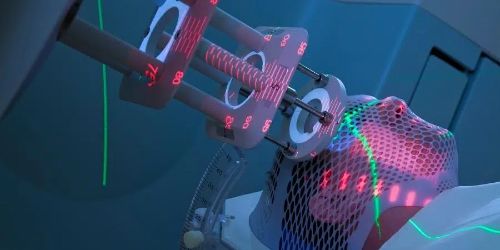
Introduction:
Cancer is a formidable disease that affects millions of lives worldwide. Over the years, significant advancements have been made in the field of cancer treatment, and radiotherapy has emerged as a powerful tool in the fight against cancer. In this blog post, we will explore the world of radiotherapy, its applications, benefits, and its critical role in modern cancer treatment.
Understanding Radiotherapy:
Radiotherapy, also known as radiation therapy, is a medical technique that utilizes high-energy radiation to target and destroy cancer cells in the body. It works by damaging the DNA within cancer cells, impairing their ability to divide and grow. Radiotherapy can be delivered externally (external beam radiotherapy) or internally (brachytherapy), depending on the type and location of the cancer.
Applications of Radiotherapy:
Curative Treatment:
Radiotherapy plays a crucial role in curative cancer treatment. It can be used as the primary treatment modality, either alone or in combination with surgery and chemotherapy, to eradicate tumors and achieve long-term disease control. Radiotherapy is commonly employed in the treatment of various cancers, including breast, lung, prostate, head and neck, and cervical cancer, among others.
Adjuvant and Neoadjuvant Therapy:
Radiotherapy is often used as an adjuvant treatment after surgery or in combination with chemotherapy. It is administered to eliminate any remaining cancer cells and reduce the risk of recurrence. Similarly, in neoadjuvant therapy, radiotherapy is employed before surgery to shrink tumors, making them more operable and increasing the chances of successful surgical outcomes.
Palliative Care:
Radiotherapy plays a vital role in palliative care, aiming to relieve symptoms and improve the quality of life for patients with advanced or metastatic cancer. By targeting tumors or specific areas causing pain or discomfort, radiotherapy can alleviate symptoms such as pain, bleeding, and obstruction, improving patient comfort and overall well-being.
Benefits of Radiotherapy:
Precise and Targeted Treatment:
One of the key advantages of radiotherapy is its precision in targeting cancer cells while minimizing damage to surrounding healthy tissues. Advanced imaging technologies, such as computed tomography (CT), magnetic resonance imaging (MRI), and positron emission tomography (PET), help precisely identify the tumor's location, shape, and size. This allows for accurate radiation beam delivery, maximizing the therapeutic effect and minimizing side effects.
Non-Invasive Treatment:
Radiotherapy is a non-invasive treatment modality, meaning it does not require surgical incisions. This makes it an attractive option for patients who are not suitable candidates for surgery due to various reasons, such as advanced age, medical comorbidities, or tumor location. Additionally, non-invasive treatment reduces the risk of surgical complications and facilitates a faster recovery.
Combination Therapy:
Radiotherapy can be effectively combined with other treatment modalities, such as surgery and chemotherapy, to achieve better outcomes. This multimodal approach is often employed in complex cases to maximize treatment efficacy, improve survival rates, and enhance patient outcomes.
Technological Advancements:
Technological advancements have revolutionized radiotherapy, making it more precise, efficient, and personalized. Techniques such as intensity-modulated radiation therapy (IMRT), image-guided radiation therapy (IGRT), and stereotactic radiosurgery (SRS) allow for highly conformal and accurate radiation delivery. This helps spare healthy tissues and organs, reduce side effects, and increase treatment efficacy.
Conclusion:
Radiotherapy plays a vital role in modern cancer treatment, offering precise, targeted, and non-invasive therapy options for patients. Its applications range from curative treatment to adjuvant therapy and palliative care. With ongoing technological advancements, radiotherapy continues to evolve, delivering more effective and personalized treatment regimens. As part of a comprehensive multidisciplinary approach, radiotherapy is a powerful tool in the fight against cancer, improving patient outcomes and providing hope for a brighter future.




























